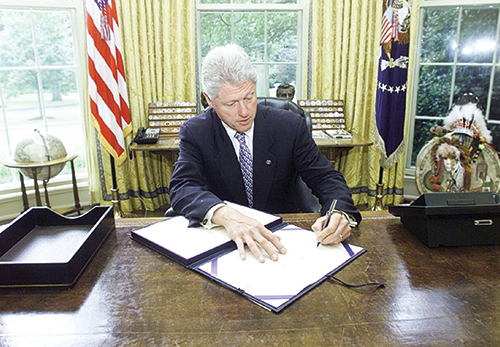The recent Oral arguments regarding same-sex marriage once again brought to light the political divisions in America. Laws like the Defense of Marriage Act that originated as political plays are once again being used politically in an attempt to maintain animosity along party lines.
Political polarity

The recent Oral arguments regarding same-sex marriage once again brought to light the political divisions in America. Laws like the Defense of Marriage Act that originated as political plays are once again being used politically in an attempt to maintain animosity along party lines.
A sea of red-and-pink equal signs filled my Facebook feed a week ago. With the start of oral arguments in the Supreme Court cases addressing California’s Proposition 8 and DOMA, some showed their support by changing their profile pictures while
others discussed the issues with friends.
And, yet again, we are in a battle of right versus left.
I found that amid all of the discussion there was little said about what spurred the cases to begin with. Many remember the passage of Prop 8 in 2008; the history of DOMA, however, is murkier for some.
DOMA was enacted under former President Bill Clinton in 1996. Its purpose is to restrict federal marriage benefits to opposite-sex couples, thus putting in place measures that prevent same-sex couples from filing joint tax returns, inheriting Social Security benefits from deceased partners and receiving
insurance benefits.
It is necessary to remember the context of DOMA’s enactment in the mid-’90s. Clinton was running for reelection, conservative Republican Bob Barr drafted the bill and support for DOMA was a part of the Republican Party platform at the time. Clinton himself was vocal about not supporting same-sex marriage, and so, when the bill passed, he quickly signed it into law. It’s generally viewed as a politically motivated decision to appease the right wing as Clinton ran for a second term. Less than 20 years later, however, the tides have turned.
Politically, this country has become extremely divisive. We have assembled into red and blue teams, and we are so angry at the other group that it’s difficult to even hold a conversation. Not two decades ago, though, a Democratic president signed into law a measure that’s now viewed as unconstitutional by the current Democratic administration.
This is but one example of the evolution of ideas within a society, but it’s also a testament to our ability to change our opinions and recognize that the divisions that sustain political animosity are ridiculous. After all, the Democratic Party of my childhood is clearly not the Democratic Party of today.
Politicians have fallen into a pattern of behavior that’s made them followers and not leaders. The game has been about taking sides and covering our ears to the opposition’s arguments, not about moving the country forward. And so, as a result, following the recent Supreme Court oral arguments, we saw a flood of lawmakers voice their support of same-sex marriage, despite the fact that more than 50 percent of the U.S. has already made it clear that they support it. The changing tide toward equality has already arrived and yet our politicians are only now starting to voice their opinions, and our court system is hearing arguments on a matter that’s now an obvious equal rights issue to so many in our generation.
The history of laws like DOMA demonstrates that the political game is simply a way of dividing the public instead of leading our country to a better future. The people we elect to represent us shouldn’t be the last ones to show their support for basic equal rights; they should be leading the charge. If they were, we wouldn’t be looking to the court 20 years after a horribly divisive law was put in place to make the obvious decision to strike it down.
As the next few months of debates over equal rights unfold, it’s important to keep in mind that politicians are trying more than ever to keep voters divided. They’re followers of their own constituents and not their leaders. It’s time that we look at the issues for what they are and press our politicians to stop tolerating political games.
DOMA is not about being a Democrat or a Republican, a liberal or a conservative. It’s about being an American and believing in liberty and equality.





